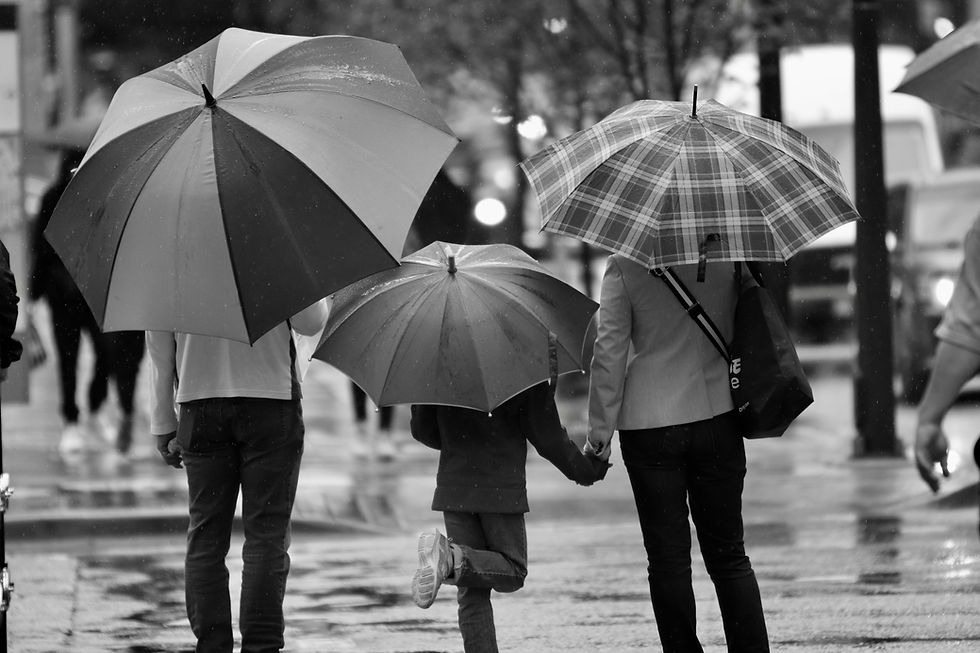Home Is Always Open… But Should It Be?
- Dana Yashou
- Jul 1, 2025
- 3 min read
Updated: Jul 22, 2025
Today, I heard a story on the radio that made me stop and reflect.
The host shared about his young adult daughter who had a fight with her husband. Upset and overwhelmed, she packed her bags and went back to her parents’ home. When her father opened the door, surprised to see her, he asked, “What are you doing here?”
She replied, “I fought with my husband. I need to stay here for now”
My first thought was: what a safe space this home must be! Kudos to the parents who made their daughter feel so secure, so deeply rooted in love, that she could show up unannounced, suitcase in hand, and know she’d be welcomed.

But the story wasn’t over.
Her dad looked at her and said, “Nope. You can’t come back here. You need to be there to work on your marriage. Leaving your problems behind won’t solve them. Running away won’t accomplish anything. If your long-term goal is to save your marriage, leaving every time you argue won’t get you closer to it.”
Wow.
What a powerful, loving, and courageous response. A moment of both truth and tenderness.
It made me think, how many of us are uncomfortable sitting with our children’s big emotions and messy problems? How many of us, with the best of intentions, rescue them from discomfort instead of equipping them to face it?
I’ve been that parent before. Wanting to protect. To remove. To fix. But that dad was right.
We need to raise children, teens, young adults, and beyond, who learn to stay when it’s hard. Who learn to communicate, problem-solve, and work things through instead of walking away at the first sign of trouble.
Yes, sometimes we need to step in and coach them. But the more we teach them to advocate for themselves, whether it’s about their grades, friendships, boundaries, or difficult work environments, the more capable and confident they become.
It’s one thing to be a safe space for them to land. It’s another to solve their problems for them without being asked. And it’s something else entirely to subtly encourage them to run from their problems by making quitting easy and coming back even easier.
That story made me ask myself: What kind of parent do I want to be when my kids are adults? Do I want them to know this home will always be a place of comfort when life gets hard? Or do I want them to work things out on their own, to learn grit and growth before retreating?
Honestly? I want both.
I want my children to know they are always welcome home. That they have a place where they are safe and seen. But I also want them to call me, not just to come running back, but to consult, reflect, and talk things through. I want them to try first. To problem-solve. To persevere. It’s easy to walk away and start fresh. But that’s not always the growth path. That’s not the character-building path. And that’s not the default I want to teach them.
Just last week, my 15-year-old daughter gave me a glimpse of this growth in action.
She has a job working with little kids, a duty she loves and takes very seriously. But there’s an adult there, someone who is supposed to be a mentor, who often makes her feel dismissed, unloved and unheard.
One night after a particularly taxing shift, she got into the car and burst into tears. I was ready to pull the plug, to let her walk away from the whole thing. But instead, through tears, she said, “I will not give them the pleasure of me leaving. I will stay. I love those little kids.”
What a proud moment for me.
She didn’t pack up and quit. She didn’t let someone else's unkindness dictate her choices. She chose her mission. She chose resilience. She chose the hard and beautiful thing: staying when it’s hard and holding onto what matters.
And I hope that’s what she’ll carry with her into adulthood, knowing that her home is always open, but her strength is already within her.




Comments